CONFEST/CONFEGE
With Letter of Brazil in the Digital Era, IBGE closes National Conference of Data Producers and Users
August 02, 2024 06h12 PM | Last Updated: August 07, 2024 04h28 PM
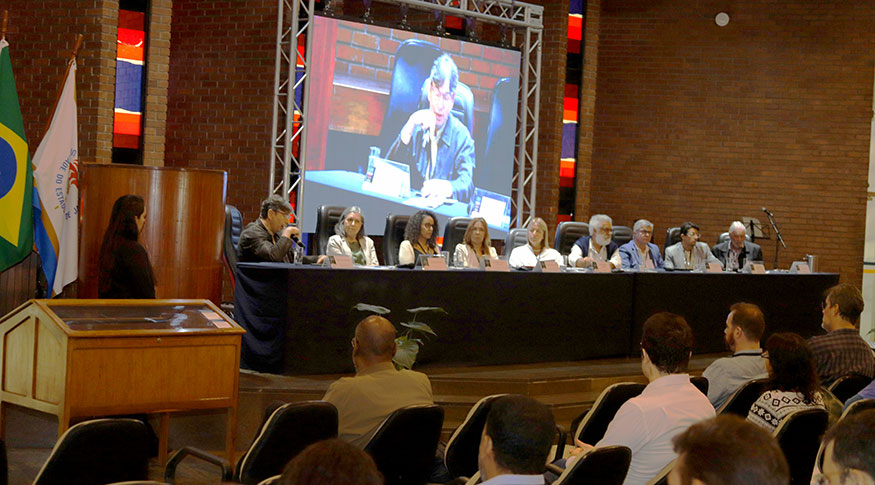
After five days, more than 140 speakers, 350 representatives from technical entities and offices and from society, 100 hours of recorded debates, six roundtables and 23 working groups, the Brazilian Institute of Geography and Statistics (IBGE) closed this Friday, 2, the National Conference of Data Producers and Users. Held at the Maracanã Campus of the State University of Rio de Janeiro (UERJ), northern zone of Rio de Janeiro, the event had as its theme "National Sovereignty in Geosciences, Statistics and Data: Risks and Opportunities for Brazil in the Digital Era," and counted with the participation of 600 technicians and three thousand registered persons, as well of five thousand on-site and remote participations. The roundtables were broadcast live through the Digital IBGE (ibge.gov.br).
The Conference gathered coordinators of roundtables and groups, including experts, representatives from giant technology transnational companies, public managers, public data companies, multilateral organizations and social movements, scholars and students, and civil society organizations to discuss digital soverignty and consolidation of the National System of Geosciences, Statistics and Data (SINGED).
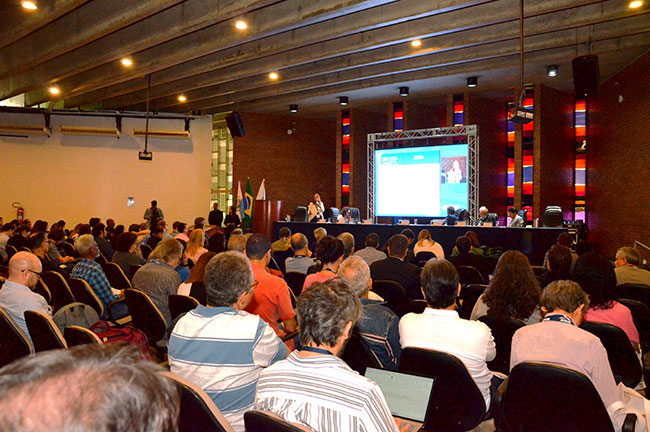
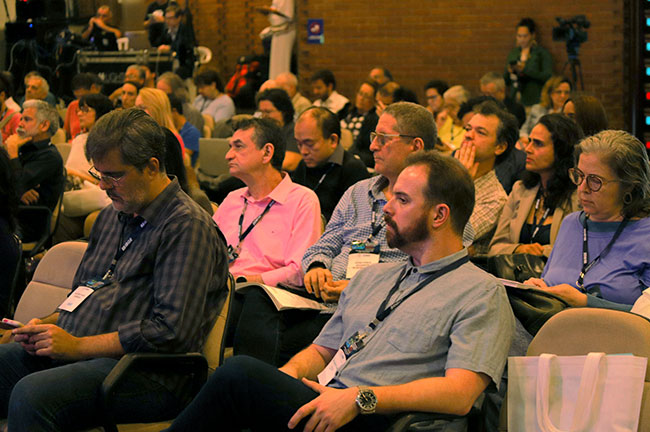
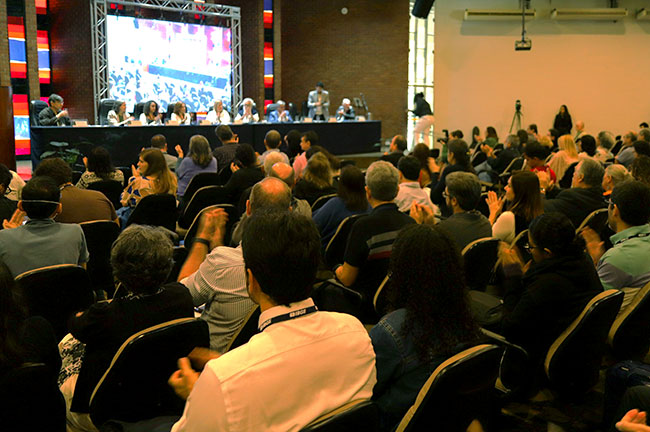
In the closing session, Marcio Pochmann, President of the IBGE, highlighted that the event "closes a process started with the work of thinking the new SINGED, from a participative, transparent, democratic and collective reflection, leading to this Conference, which provides us with elements and subsidies for the way ahead, through a new regulatory mark, which requires a debate with the Legislative, Executive and Judiciary Powers."
Porchmann also highlighted that the results obtained from the Conference debates "provide subsidies to design a draft based on the reflection of the academic community and data producers and users. This Conference crowns all the effort accomplished in the entire period, before and during CONGEGE/CONFEST."
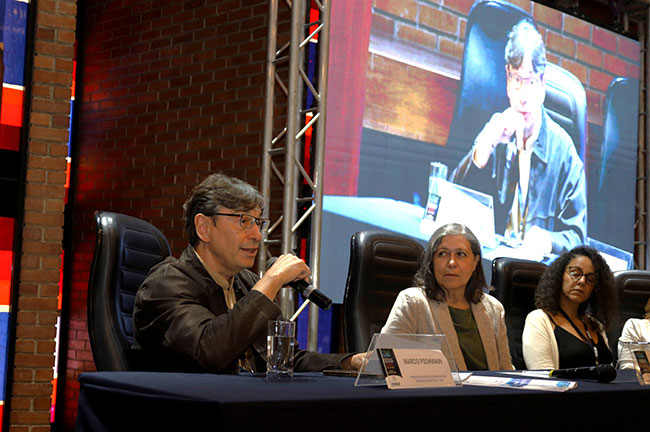
Representing the Minister of Planning and Budget, Simone Tebet, Executive Secretary Gustabo Guimarães mentioned that the theme "Risks and Opportunities for Brazil in the Digital Era" could not be more suitable and timely, since the technological advances and data science are evolving rapidly. "One of the major challenges is to follow up such evolution and apply them in the daily routine of our lives, as the case of public managers. We cannot stay behind, under penalty of becoming obsolete and compromising the growth and development of our country," said Guimarães.
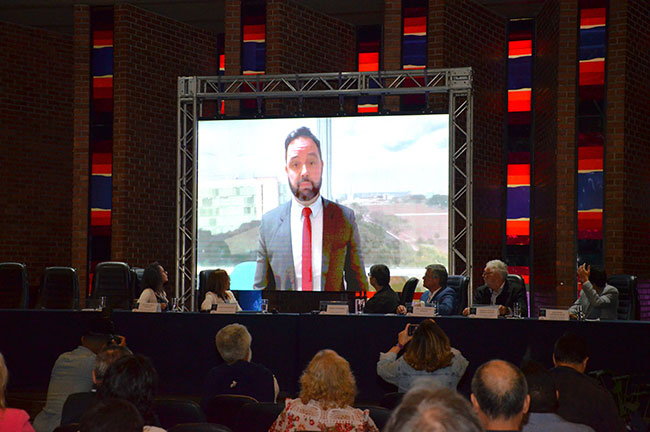
Gulnar Azevedo, UERJ´s Dean, emphasized that " it is very important to know that the university is a space to discuss consistent public policies based on data produced by the IBGE. UERJ is open for everyone who would like to improve the health and education conditions of our population. We count with the IBGE and thinking in this perspective along this week is very rewarding," stated the dean.
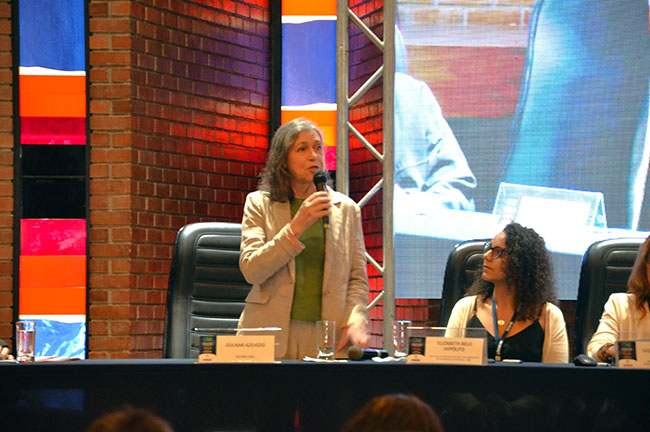
Marcos Mazoni, IBGE´s Director of Information Technology (DTI), highlighted the roundtables "The Digital Era and its interfaces with the State institutions" and "Technological risks and opportunities for the public and private sector," which gathered the major technology companies of the Federal Government, the Ministry of Management and Innovation, as well as private companies, aiming at discussing the current technological enviroment. "We highlight the fast and evolutionary process found in the Big Techs, accelerated during the pandemic, which changed some strategies. For example, sharing of the National Data Infrastructure has been resumed, allowing a streamlined navigation through sectoral information in the areas of health and education, which might serve to public policies.
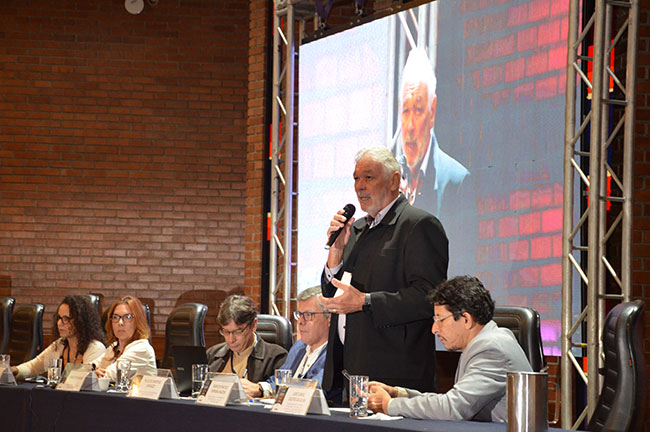
Elizabeth Hypólito, Director of Surveys (DPE), mediated the roundtable "System Governance" and mentioned the results of eight working groups related to this theme, which discussed issues like SINGED´s values and general guidelines, system composition and opportunities for the Northeast in the digital era. The roundtable and working groups counted with visions from producers of national information in the public sector and civil society, users, producers of social statistics and producers of recommendations. "We approached the governance model to be adopted with clear policies and norms, new data sources and technologies incorporated and used on behalf of SINGED, as well as the importance of listening the needs of users of different profiles, as relevant instruments in the use of information."
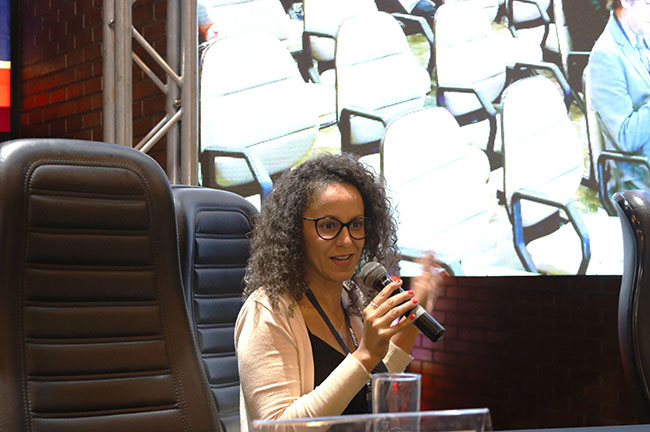
Ivone Lopes Batistia, Director of Geosciences (DGC), highlight the results of the debates in the roundtable "Technology and data" and in the six working groups that dealt with themes like Big Data challenges and national data sovereignty. "We discussed the new challenges for improvement of the bases for the production of information in face of constant technological innovations in the capture and processing of large volume of data."
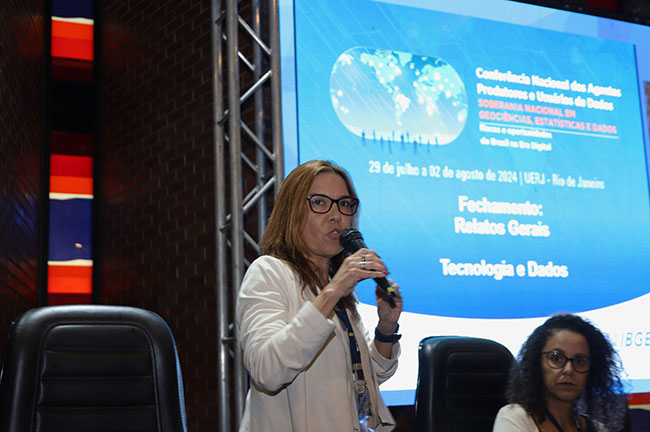
The themes "Communication and dissemination" of data and digital sovereignty were also approached during the conference, under the perspective of SINGED conformation. Paulo Januzzi, Coordinator General of the National School of Statistical Sciences (ENCE), reminded the long period of conversations over the last months up to the accomplishment of the Data Conference in the Digital Era. "We benefited from the discussion between producers and users of statistics, aiming at bringing inputs for several internal discussions at the IBGE, like the two editions of the IBGE Dialogues 90 Years, as well as the debates carried out at ENCE. Such discussions support some initiatives developed over the last months and bring many other elements that force us to reflect on the paradigmatic change of what is science in general."
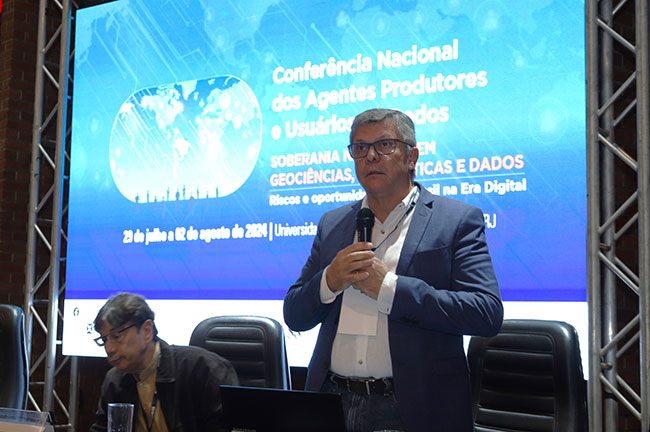
José Daniel Castro, Coordinator General of the Center for Information Documentation and Dissemination - Coordination of Social Communication (CDDI CCS), highlighted the participations and partnerships for the Conference, as well as the challenges to carry out the next steps in SINGED´s communication and dissemination. "We had to cover everything the IBGE does in the groups and roundtables, for which we counted with international representatives remotely from England, Finland and the Netherlands, for instance. In the national roundtable, we incorporated areas like the National Library and leaders specialized in communication, from privacy to digital literacy." Castro also stated that he counted with "researchers in the communication area, who pleaded diversity in the digital era and not only in the Conference, but following the dissemination ahead."
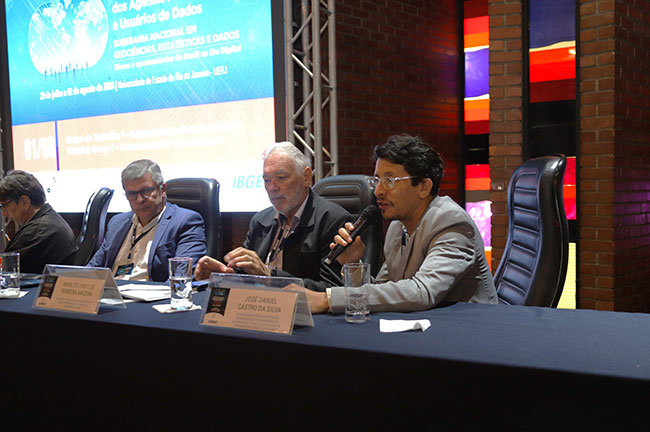
Danielle Barreiros, IBGE´s Manager of Library, Information and Memory, exhibited the document of the first Population Census carried out in Brazil in 1872. "They are handwritten works that evoke memory. Whenever we say this word, we think about something in the past, though memory also brings the temporal dimensions, gathering present, past and future."
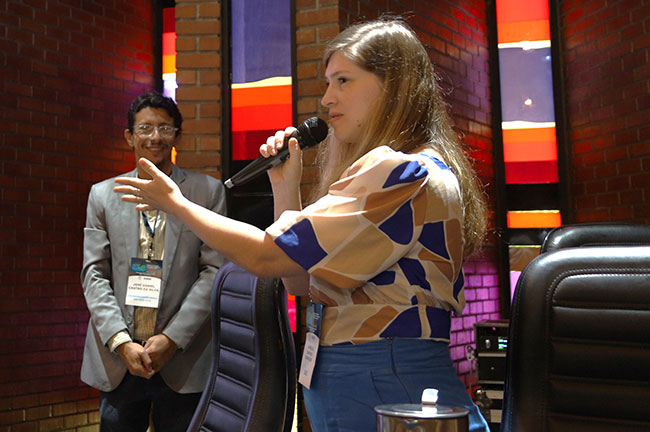
Letter of Brazil in the Digital Era
In the end of the event, IBGE Directos and UERJ´s Dean, Gulnar Azevedo, signed the Letter of Brazil in the Digital Era. Read the complete letter below:
IBGE 90 Years: Letter of Brazil in the Digital Era
Rio de Janeiro, August 2, 2024
The Brazilian Institute of Geography and Statistics (IBGE) and data producers and users, national and international, supported by the State University of Rio de Janeiro (UERJ), which hosted in its Maracanã Campus, in the city of Rio de Janeiro, the National Conference of Data Producers and Users, from July 29 to August 2, considering the theme digital sovereignty and the consolidation of the National System of Geosciences, Statistics and Data (SINGED) and their different implications, assert that:
1 - The Conference met the IBGE´s objective of discussing the context of the change from the Industrial Era to the Digital Era, in which Communication is present across all chains and sectors, creating companies larger than countries with an impact on the sovereignty of nations, without guaranteeing the confidentiality of personal information and of commercial trnasactions. Therefore, Brazil, through the IBGE and technical partners, aimed at contributing to discuss about a survey on the Digital Era, based on six axes: Communication infrastructure; Information production, dissemination and certification; Data sovereignty; Official data and copyright; Digital literacy and Capture of privacy.
2 - In order to constitute SINGED, a comprehensive action of literacy was identified for the national statistical cadres, as well as for users and producers, to understand the risks and potentialities of the new scenario and, especially, to take them to gather the classic methods with new data sources, provided in the Digital Era. A reflection on the Fundamental Principles of Official Statistics is welcome, for its advance towards to sharing responsibilities on information, data and respective methods under the scope of SINGED.
3 - Especially in the last ten years, the volume, variety and speed in the production of data configured an informational context usually called as Big Data. There is a multitude of new data "organically" produced and "materially" compilable by images of optical sensors distributed along cities, records of mobile phone calls, purchase ledgers of electronic commerce, personal interactions in social media, among others.
In this regard, having more data available that demand new techniques and patterns of treatment and qualification requires a paradigmatic change in the qualification of technical cadres of the different institutions that will integrate SINGED. Deterministic and probabilistic methods of Data Integration, Data Science models and Artificial Intelligence tools are the current technical knowledge key to produce more diverse statistics in thematic terms, territorially granular and more constantly updated.
4 - The effective operation of SINGED will only be possible with the advance in the statistical, geo-informational and data culture, involving, in every step, the civil society, so as it can also express its demands for information and data. SINGED´s governance requires identifying the recognition of interoprability as a central concept to be explored in the new data environment, including the different experiences with this theme in the federal government. It also required to look for forms of cooperation with the institutions network, either public or not, which have admittedly produced relevant and consistent information for managing public policies, socioeconomic studies and other subsidies for the society.
SINGED´s governance requires the continuation and deepening of the debate, as the definition and communication of the statistical and geoscientific purposes of the system, as well as its composition and structure. Aiming at a democratic and inclusive participation, the governance should be anchored to a strategic collegium and thematic committees always aiming at getting closer to the society needs.
6 - Concerning legislation and norms, it is required to recognize and enhance existing classificiations, concepts and standards and making them compatible at national and international levels, as well as to consider principles and good practices in the scope of statistics and geosciences and guarantee effectiveness of the legislation to oblige informants to provide information to the System and to access administrative data and alternative data sources for statistical and geoscientific use.
7 - It is relevant to highlight the role of the geospatial information as an integrative structure for statistics and data, considering location as a common reference and the importance of the spatial identification of the environmental, economic, social and demographic dynamics in the territory.
8 - Under the budget and financial point of view, ways should be built to improve and optimize resources coupled with the other parts of the System, in order to advance towards data sovereignty. Redistributing wealth and combating the economic centralism of the proprietary platforms will only be possible through the construction of local cooperation platforms, with their own structures, based on free software, in order to safeguard our national sovereignty and our citizens´ data, through the integration of SINGED under the coordination of the IBGE, supported by all the Data Producers and Users gathered in this Conference
9 - Based on the reflections of data users and producers, by means of dialogues and on-site and remote debates, in five days of conference, with more than 100 speakers, more than 350 representatives from technical entities and offices and from society, with more than 100 hours of recorded debates, six roundtables and 23 working groups, the IBGE officers will develop proposals partly directed to the National Congress, since they require changes or the creation of a Digital Constitution; they will provide the Presidency of the Republic with an overview of the IBGE Dialogues 90 Years with a summary of the Conference and suggestions that can be made within the governmental structure, for a governance proposal based on pilots with offices and ministries, which, in a first moment, will require resources, yet also reducing the cost of the organization and operation of the collection, storage, dissemination and use of indicators and data; create committees from cross working groups carried out in the Conference; dialogue with international data offices, based on the debate of the structuring axes in public and private data, statistics and geosciences, always taking into account the national sovereignty.
Lastly, the IBGE thanks UERJ, on behalf of its dean, for the major support to carry out this Conference, expecting to create a center for youth indicators within UERJ to diagnose, plan and take action, so that this generation has the bases to compete for opportunities in the Digital Era, beginning with the combat against real and digital inequality, creating jobs and income from investments in innovation and knowledge.
Rio de Janeiro, August 2, 2024
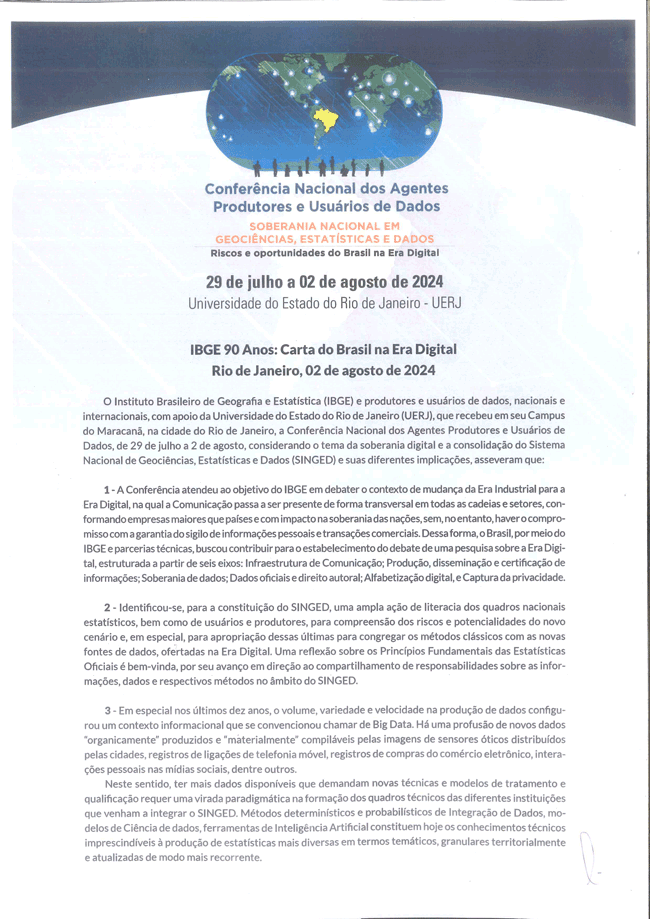
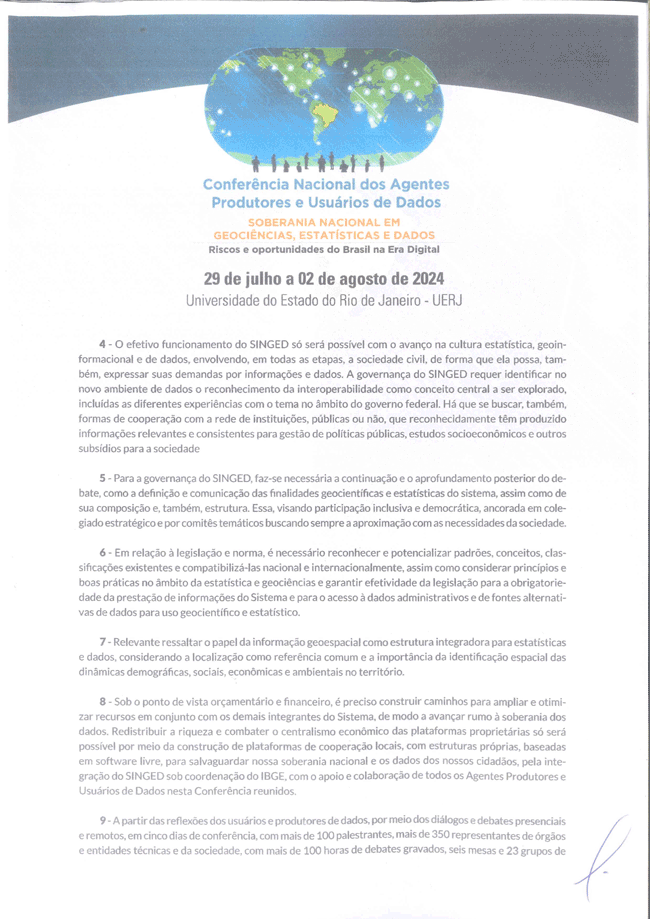
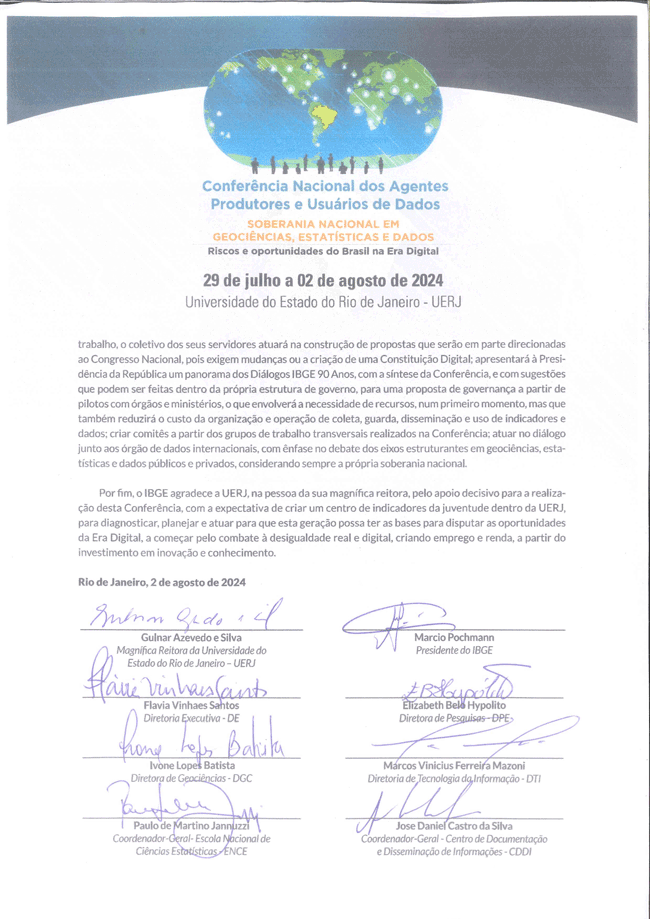
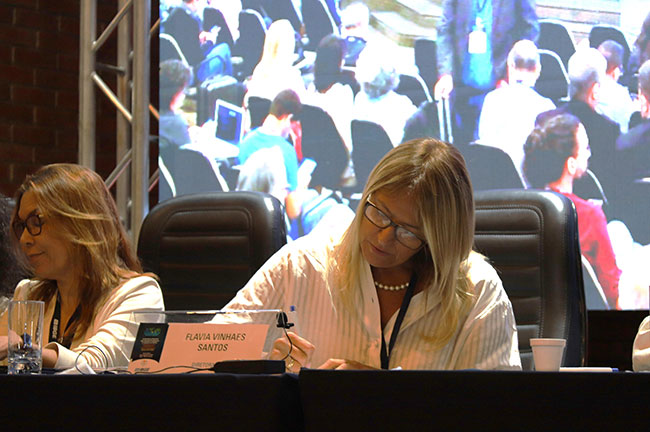
Gilberto Gil is celebrated in the end of the Data Conference in the Digital Era
Former Minister of Culture, singer and composer Gilberto Gil was celebrated in the end of the Data Conference in the Digital Era. Actor Thiago Justino and singer Marcelo Bandeira sing the song "Pela internet" (Through the Internet), released in 1997. It deals with technological innovation in the 1990s, like the popularization of the Internet, using terms like gigabytes, homepage and website.
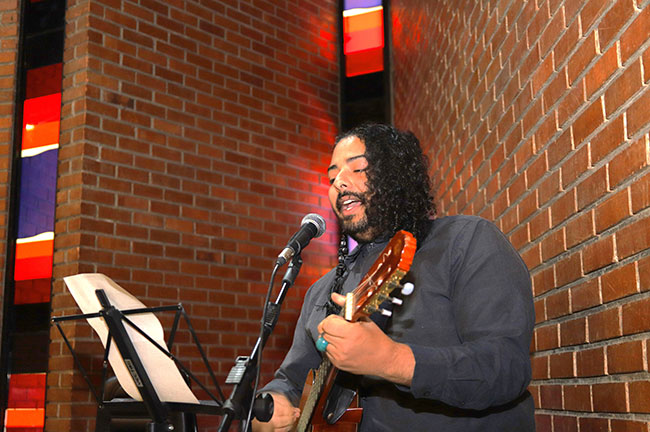
Take a look at the video with images from the five days of the Conference of the Digital Era:
The complete schedule, presentations, news and more information are available on the website of the Conference of the Digital Era.




















